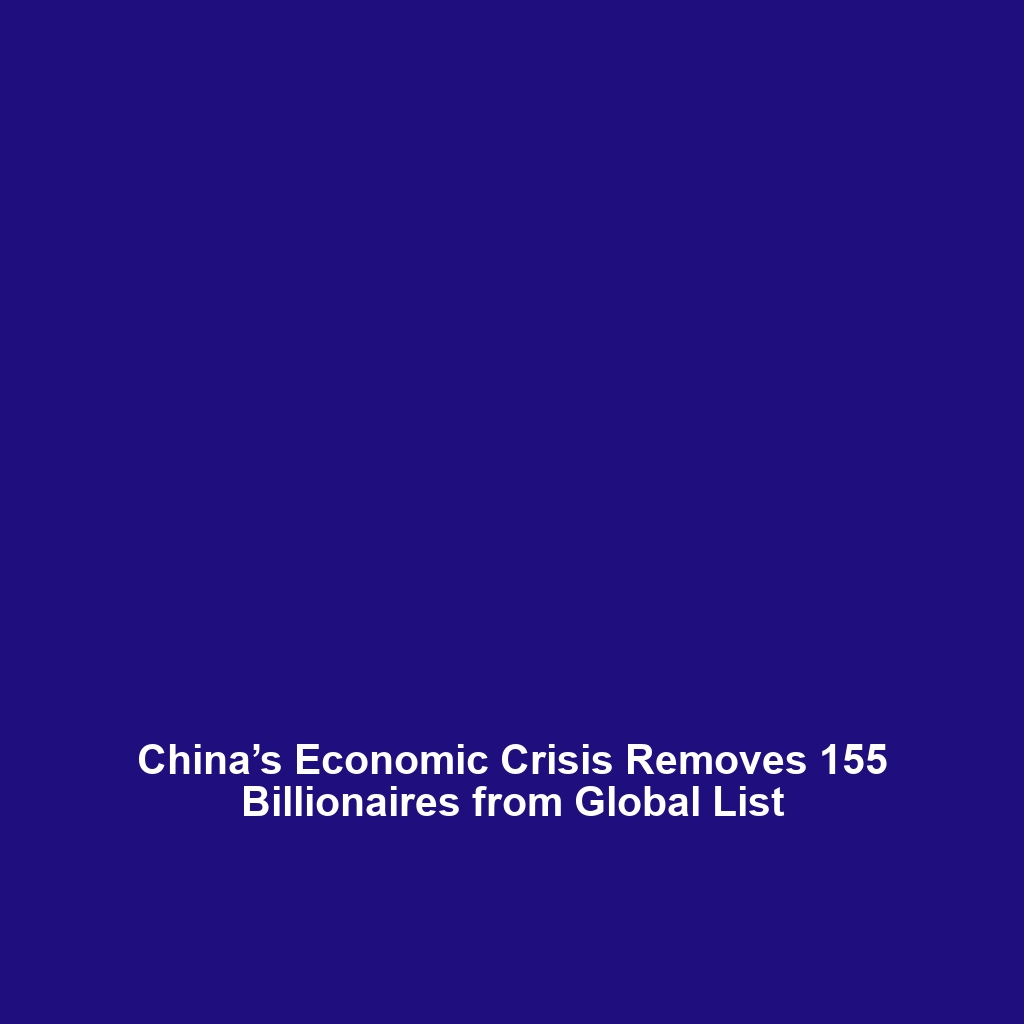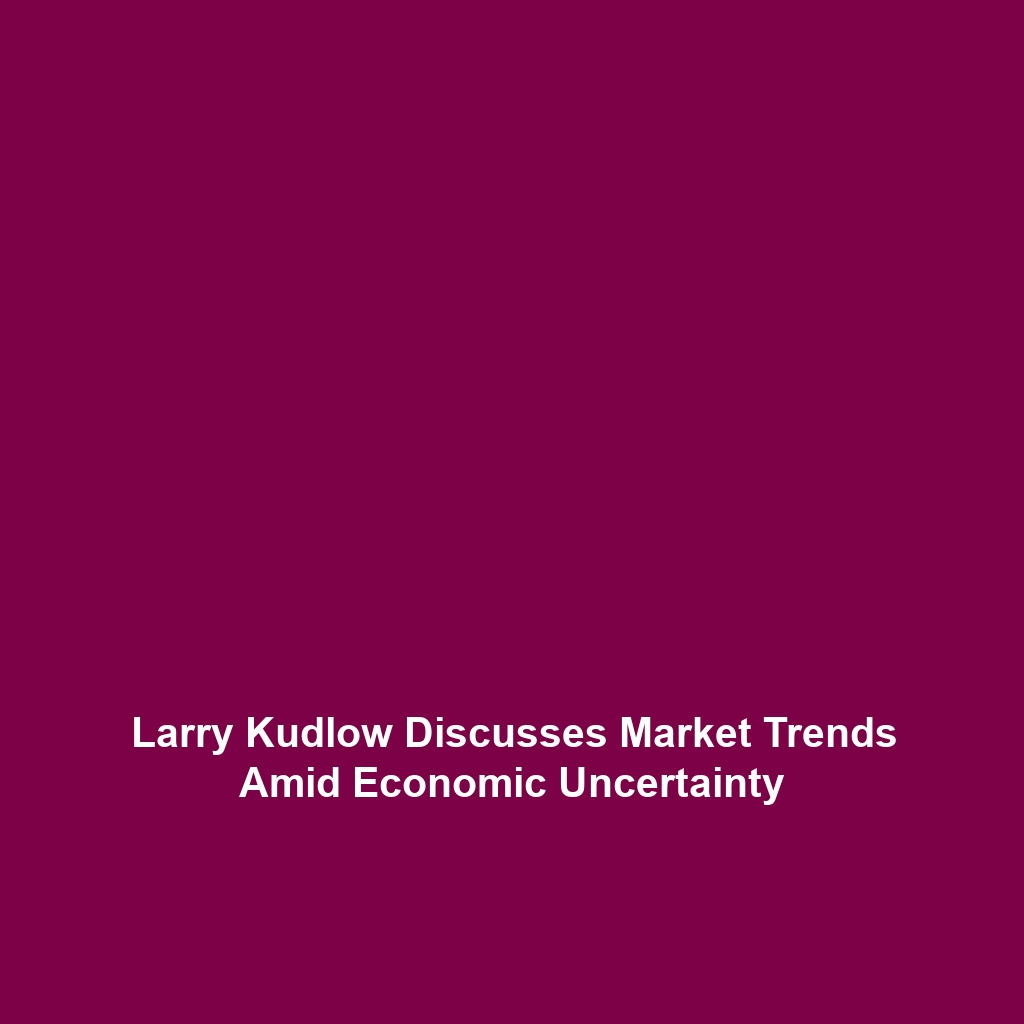Your cart is currently empty!
Tag: consumer spending

China’s Economic Crisis Removes 155 Billionaires from Global List
China’s Economic Crisis Removes 155 Billionaires from Global List
China’s Economic Crisis Removes 155 Billionaires from Global List
In a significant shift in the global wealth landscape, China’s ongoing economic downturn has led to the removal of 155 billionaires from the billionaires’ list compiled by Forbes in 2023. This decline is largely attributed to a series of economic challenges, including a surge in COVID-19 infections, a struggling real estate sector, and persistent inflationary pressures. As a result, the country’s billionaire count has reached its lowest level in nearly a decade.
Economic Context of the Billionaire Exodus
The removal of 155 billionaires reflects profound changes within China’s economy. According to Forbes, the total number of billionaires in China fell to 1,000, with the collective wealth of these individuals shrinking by $660 billion. Factors contributing to this decline include a prolonged slowdown in economic growth, which has fallen to its lowest rate in over three decades, coupled with external pressures such as rising interest rates and geopolitical tensions.
Impact on Key Industries
The impact of the economic crisis has been particularly severe in several key industries that historically generated significant wealth for entrepreneurs. The real estate sector, a staple of wealth accumulation for many billionaires, has been plagued by defaulting developers and declining property prices. Notably, real estate tycoon Hui Ka Yan, the founder of China Evergrande Group, saw his net worth plummet significantly, resulting in his departure from the billionaire rankings.
Moreover, technology giants have also faced scrutiny, with government regulations intensifying against large tech companies. This has directly affected prominent figures such as Jack Ma, the founder of Alibaba, who has faced challenges from government oversight that has impacted the company’s valuation.
Reactions from Financial Analysts
Financial analysts are closely observing these shifts, with many predicting that the decline in billionaire numbers could have far-reaching consequences for investment and economic recovery in China. Shang-Jin Wei, a professor at Columbia University and former chief economist of the Asian Development Bank, stated, “The loss of wealth among billionaires is reflective of broader economic pressures that could hinder investor confidence both domestically and internationally.”
Wei emphasized that the volatility in wealthy circles could signal a potential reduction in consumer spending and investment in China, which is crucial for economic rebound. As billionaires typically reinvest a significant portion of their wealth, their reduction in status may translate into decreased economic dynamism.
The Global Perspective on Wealth Redistribution
Globally, the reshuffling of China’s billionaire list signifies a broader trend toward wealth redistribution. As wealth concentration diminishes among elite classes in China, countries like the United States have seen an increase in their billionaire counts. For instance, Forbes reported that the United States added 36 billionaires to its list this year, highlighting the stark contrast in economic recoveries.
This international disparity may influence global investment patterns, prompting wealthier individuals to explore opportunities in markets perceived as more stable or favorable for growth. According to recent reports by Credit Suisse, the overall global wealth distribution continues to tilt towards developed nations, raising questions about the sustainability and long-term impact of these economic shifts.
Looking Ahead: What This Means for the Future
As China’s government grapples with these economic challenges, the path forward remains uncertain. Analysts suggest that structural reforms will be essential to restore confidence in the economy and curb the ongoing crisis. A key focus will likely be on regulations that support private enterprise while balancing state oversight to prevent market excesses.
Moreover, amidst the crisis, there are calls from economists like Michael Pettis, a finance professor at Peking University, for more sustainable growth strategies. “China needs to pivot towards domestic consumption and innovation rather than relying on property and investment-driven growth,” Pettis stated.
Conclusion
In summary, the removal of 155 billionaires from China’s wealth rankings not only highlights the depth of the nation’s economic challenges but also serves as a microcosm of the global shifts in wealth and investment patterns. As China strives to regain its economic footing, the implications of this billionaire exodus will likely resonate across markets and economies worldwide. Stakeholders will be keen to monitor how this evolving narrative affects both domestic and global economic prospects in the years to come.
For further reading on this topic, you may wish to explore additional articles on economic recovery strategies in China and the impact of wealth concentration on global economies.

Larry Kudlow Discusses Market Trends Amid Economic Uncertainty
Larry Kudlow Discusses Market Trends Amid Economic Uncertainty
Larry Kudlow Discusses Market Trends Amid Economic Uncertainty
In a recent interview, economist Larry Kudlow provided valuable insights into current market conditions amidst ongoing economic uncertainty. With rising inflation, fluctuating interest rates, and geopolitical tensions influencing economic trends, Kudlow’s perspective serves as a focal point for investors seeking to navigate these turbulent waters.
Current Economic Landscape
The U.S. economy has displayed signs of resilience in the face of multiple challenges, including supply chain disruptions exacerbated by the COVID-19 pandemic and the ongoing war in Ukraine. According to the latest reports from the Bureau of Economic Analysis, the U.S. GDP grew at an annualized rate of 2.4% in the second quarter of 2023, a strong performance relative to expectations. However, Kudlow warns that inflation, which hovered around 3.7% in August 2023, continues to be a significant concern for consumers and policymakers alike.
“Inflation is the number one enemy,” Kudlow stated, emphasizing the need for appropriate measures to stabilize prices. Historical data indicates that inflation rates at or above 3% can erode consumer purchasing power and affect overall economic growth. This volatility creates uncertainty for investors and businesses attempting to forecast their future strategies.
Interest Rates and the Federal Reserve
The Federal Reserve’s current monetary policy has also come under scrutiny as it attempts to balance economic growth with inflation control. Following a series of interest rate hikes in 2022 and 2023, many economists are debating the potential for further increases. Kudlow advocates for a more cautious approach, suggesting that while higher rates are necessary to combat inflation, they should not stifle economic growth. He argues that the Fed needs to be adaptive and flexible in its policy-making.
“The Fed must avoid excessive tightening, which could lead to a recession,” Kudlow cautioned. His remarks reflect broader concerns in the economic community, where some experts predict that continued aggressive interest rate hikes could trigger an economic downturn.
Geopolitical Impacts on Markets
Geopolitical tensions have further complicated the economic landscape. The Russian invasion of Ukraine has led to rising energy prices, which Kudlow notes is one of the contributing factors to inflation. The ongoing conflict has disrupted supply chains, driving up costs for consumers and businesses alike. Kudlow avers that unless geopolitical tensions are resolved, markets will likely continue to experience volatility.
In addition, the U.S.-China relationship remains strained, with trade policies and tariffs shaping market dynamics. Kudlow emphasizes the importance of strong international relations to facilitate trade and economic stability. “We need to ensure our partnerships are robust to mitigate risks,” he stated, underscoring the interconnectedness of the global economy.
Investment Strategies for Volatile Times
In light of these challenges, Kudlow offers strategic advice for investors. His primary recommendation is diversification. He believes that a well-diversified portfolio can reduce risk during periods of high market volatility. Investors should consider a mix of asset classes, including stocks, bonds, and alternative investments, to better position themselves against economic shocks.
Kudlow also highlighted the significance of sectoral investments. Sectors such as technology and renewable energy are likely to witness growth, while traditional sectors may face headwinds. He notes, “Investors should focus on innovation and adapt to changing market trends.” This sentiment is echoed by several analysts who argue that companies embracing technology will outperform their peers.
Looking Ahead: Future Growth Prospects
Despite the current economic challenges, Kudlow remains optimistic about the potential for future growth. He points to robust consumer spending and a resilient job market as indicators of a strong economy. The unemployment rate, which is currently at 3.5%, suggests that job security remains a critical strength in the U.S. economy.
“If we can maintain consumer confidence and reduce inflation, I believe we can see sustained economic growth,” Kudlow asserted. He encourages policymakers to prioritize growth-oriented strategies that will support businesses and foster an environment conducive to innovation.
Conclusion
As markets grapple with a unique set of challenges, Larry Kudlow’s analysis provides a valuable lens through which to understand current trends. His insights on inflation, Federal Reserve policies, geopolitical factors, and investment strategies offer a roadmap for navigating economic uncertainty. While the path ahead may be fraught with obstacles, Kudlow’s perspective underscores the importance of adaptability and foresight in achieving long-term economic stability.
For investors and policymakers alike, engaging with these trends and adjusting strategies accordingly will be crucial in the coming months. As Kudlow aptly noted, “The key to success lies in understanding the complexities of the market and preparing for whatever lies ahead.”

Discover Financial Services (DFS)
Summary
Discover Financial Services (DFS) is a leading direct banking and payment services company headquartered in Riverwoods, Illinois. Founded in 1985, DFS offers a variety of financial products and services including credit cards, student loans, personal loans, and savings accounts, serving millions of customers across the United States. With a strong commitment to customer satisfaction and innovative financial solutions, Discover continues to diversify its offerings and expand its market presence.
News
Recently, Discover Financial Services announced its third-quarter earnings for 2023, revealing a significant increase in net income compared to the previous year. This growth has been attributed to a rise in consumer spending and effective marketing strategies. Additionally, the company has introduced new features on its mobile banking platform, enhancing customer convenience and engagement. Analysts are optimistic about DFS’s ability to maintain its growth trajectory amid a competitive financial services landscape.
Research
Recent studies indicate a growing trend towards digital banking solutions, positioning Discover Financial Services favorably within the market. A report from industry analysts highlights DFS’s strategic investments in technology and customer service, allowing it to compete effectively against other traditional and fintech rivals. Ongoing research will continue to monitor the company’s performance, especially in relation to changes in consumer behavior post-pandemic.
Charts
The stock performance of Discover Financial Services has shown resilience over the past year, with recent charts illustrating a steady upward trend in share prices. Comparative analysis with major competitors indicates that DFS has outperformed the industry average in several key metrics, making it a strong candidate for investors seeking stability and growth potential in the financial sector.
Community
Discover Financial Services remains committed to community support and social responsibility. The company actively participates in various community initiatives, including financial literacy programs and support for local non-profits. Through its philanthropic efforts, Discover aims to empower individuals and families by providing them with essential financial education and resources.
Statistics
- Market Cap: 30 billion,
- P/E Ratio: 9.56,
- Dividend Yield: 1.75%,
- 52-Week Range: 85.12 – 132.56,
- Average Volume: 4 million shares
Financials
- Revenue: 14 billion,
- Net Income: 2.6 billion,
- Cash Flow: 3 billion
Historical Data
Discover Financial Services has demonstrated solid performance over the past five years, with a marked increase in stock price and profitability. Historical data indicates a strong recovery following the 2020 economic downturn, driven by strategic cost management and an increase in credit card spending. Investors can analyze the company’s financial history to gauge its resilience and growth potential in the financial industry.
Profile
Discover Financial Services operates primarily in the financial services sector, focusing on credit card issuance and banking. The company’s mission is to help consumers achieve their financial goals through accessible and innovative financial products. With a blend of online and offline banking solutions, DFS caters to a diverse customer base while maintaining a robust risk management framework to mitigate potential financial challenges.
Analysis
Experts suggest that Discover’s strong fundamentals, including its impressive net income and revenue growth, make it an attractive investment option. The company has successfully navigated economic fluctuations and is well-positioned to capitalize on emerging trends in the financial services sector, particularly in digital banking and mobile payment solutions. Ongoing technical and fundamental analysis will provide further insights into the stock’s potential performance.
Options
Options trading for Discover Financial Services is actively pursued by investors looking for leveraged plays on the stock’s performance. Current options data reflect a mix of bullish and bearish sentiments, indicating varying investor expectations regarding the stock’s future trajectory. Investors are encouraged to consult with financial advisors to fully explore the potential risks and rewards associated with trading options on DFS shares.
Holders
A diverse group of institutional and retail investors hold shares in Discover Financial Services, showcasing the company’s appeal across various investor segments. The stock is frequently analyzed for its shareholder demographics and potential shifts in investor sentiment that could impact market performance.
Sustainability
Discover Financial Services prioritizes sustainability in its operations, focusing on environmentally friendly initiatives and responsible business practices. The firm is committed to reducing its carbon footprint and has implemented various measures to enhance its operational efficiency while promoting a sustainable business model. Discover’s dedication to social and environmental responsibility aligns with the expectations of today’s socially-conscious investors.
Key Executives
Top Institutional Holders
- Vanguard Group,
- BlackRock,
- Fidelity
For further financial insights, analysis, and real-time market updates, visit UpCubeMoney.com.


